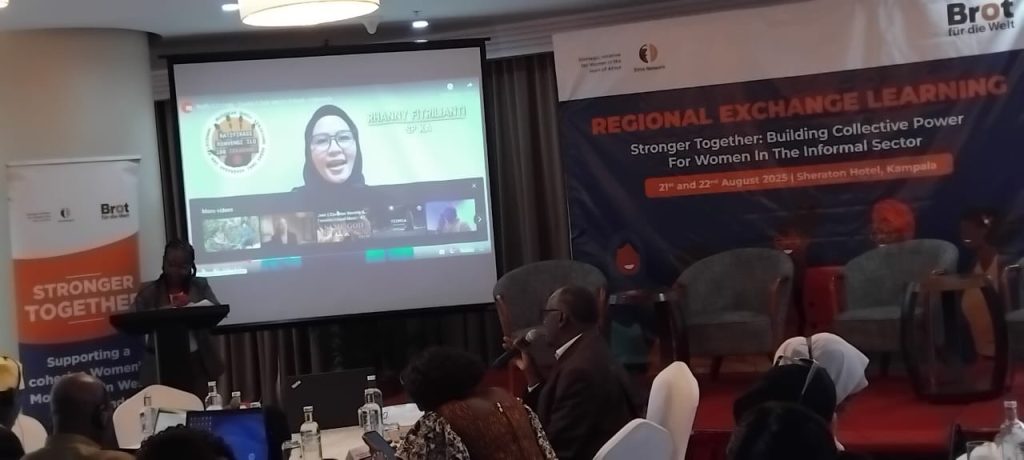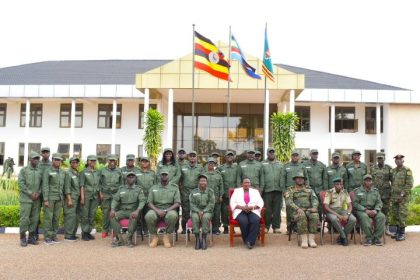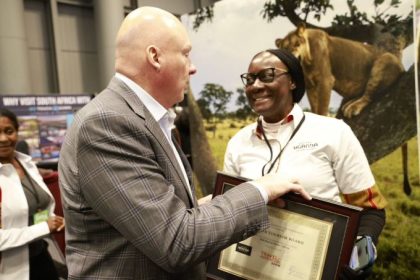Women in informal sector demand recognition, protection at SIHA regional forum in Kampala

Women market vendors (WMVs) from across the Greater Horn of Africa have called for stronger recognition of their role in local economies and greater access to social protections, during a two-day regional learning exchange and networking event hosted by the Strategic Initiative for Women in the Horn of Africa (SIHA) in Kampala.
Held under the theme “Stronger Together: Building Collective Power for Women in the Informal Sector,” the gathering brought together women leaders, policymakers, and civil society actors to spotlight the often invisible contribution of women traders in sustaining households and driving community economies.
Despite their central role, WMVs across the region continue to face limited access to health cover, pensions and safety nets, while contending with harassment and low policy attention. “Women in the informal sector are sometimes treated as invisible laborers, yet their livelihoods sustain entire families and fuel trade in our towns and cities,” participants observed.
Stories shared by women vendors from Uganda, Sudan and Ethiopia illustrated how grassroots organizing has helped influence decision-making at local and national levels to secure improved working conditions. Speakers stressed that building alliances across borders remains key to amplifying women’s voices in informal economies.
Panelists including Ethiopia’s Huluagerish Tazez, Sudan’s Zahia Tahir and Uganda’s Judith Drate discussed common challenges facing women traders, alongside best practices in organizing and advocacy that could inspire action across the Horn of Africa.
A major focus of the Kampala forum was the International Labour Organization’s Convention 190 (ILO C190) on eliminating violence and harassment in the world of work. Discussions centered on the progress and challenges of ratifying and implementing the convention, with voices from Uganda and Somalia underscoring the urgency of domesticating C190 into national legislation. “This convention matters to women market vendors because it offers a global framework to confront harassment and abuse that have long gone unchecked,” said Molly Wambi, one of the Ugandan panelists.
SIHA and its partners also stressed the need for stronger regional solidarity movements, coordinated advocacy strategies, and creative tools—from podcasts and online campaigns to TV talk shows—to elevate the visibility of women in the informal economy.
Closing reflections highlighted the importance of translating research into advocacy. SIHA shared success stories where evidence has already strengthened policy debates and improved protections for market women in parts of the region.
Founded in 1995, SIHA is a feminist civil society network with over 100 member organizations across the Greater Horn of Africa. The Kampala event was part of its long-term push to empower women in informal work by linking grassroots experiences to policy reform and regional solidarity.


 Government reaffirms commitment to capitalise UDB as Bank deepens development finance role
Government reaffirms commitment to capitalise UDB as Bank deepens development finance role
 Uganda’s DEI Biopharma gene therapy breakthrough could transform sickle cell treatment
Uganda’s DEI Biopharma gene therapy breakthrough could transform sickle cell treatment
 Equity Bank Uganda set to close 2025 on firmer footing as clean-up phase gives way to growth
Equity Bank Uganda set to close 2025 on firmer footing as clean-up phase gives way to growth
 USA–Canada certification dispute could expose Uganda and regional airlines to regulatory risk
USA–Canada certification dispute could expose Uganda and regional airlines to regulatory risk
 KPMG flags widening execution gap as tech leaders bet on AI maturity, talent and partnerships
KPMG flags widening execution gap as tech leaders bet on AI maturity, talent and partnerships
 Destination Uganda clinches “Best in Show – Africa” at New York Travel & Adventure Show
Destination Uganda clinches “Best in Show – Africa” at New York Travel & Adventure Show